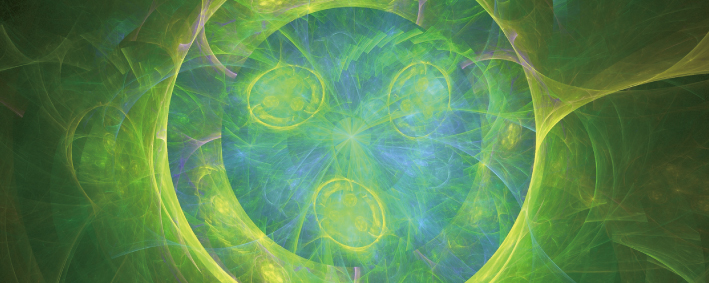 |
CCST9001 Scientific and Technological Literacy
|
Course Description
[The lectures of this course will be delivered on WEDNESDAY AFTERNOON (2:30 pm to 4:20 pm) in the WILLIAM MW MONG BLOCK, SASSOON ROAD CAMPUS.]
What exactly is life? Can we make it better? Can we redesign life to meet society’s major challenges in energy, healthcare and food? The new field of synthetic biology has emerged from developments in technology whereby scientists can now redesign living organisms and integrate modular synthetic components. Some are saying that the 21st century will be the “bio” century but others are more circumspect given various challenges for synthetic biology business ventures in recent years. Will synthetic biology really deliver on its big promises? What are the risks and hazards? How does synthetic biology intersect with entrepreneurship, big business, geopolitics and the global economy?
We will explore these and other questions by critically analysing the impact of synthetic biology on the individual, the global community and the natural environment. The course is designed for students from all academic backgrounds, where key scientific concepts and breakthroughs are covered in an accessible manner without the technical detail. We will discuss the impact that synthetic biology may have upon human health, global inequalities, the future bioeconomy, and emerging ‘bio-inspired’ technologies. There is a strong emphasis on collaborative group learning to enable students to engage creatively with one of the most exciting frontiers in the human endeavour.

Course Learning Outcomes
On completing the course, students will be able to:
- Demonstrate understanding of the interconnectedness between science, technology and fundamental human issues relating to synthetic biology.
- Review recent developments in synthetic biology, and examine changing values, interests and behaviours of society from multiple perspectives.
- Critically analyze scientific and ethical perspectives relating to the applications of synthetic biology using evidence-based arguments to reach reasoned positions.
- Evaluate how emerging and future synthetic biology technologies may benefit and/or potentially endanger humanity and the natural environment.
Offer Semester and Day of Teaching
Second semester (Wed)
Study Load
| Activities | Number of hours |
| Lectures / Seminars | 22 |
| Tutorials | 10 |
| Laboratory experience | 4 |
| Reading / Self-study / Tutorial and debate preparation | 40 |
| Team assessment task preparation | 24 |
| Individual assessment task preparation | 20 |
| Total: | 120 |
Assessment: 100% coursework
| Assessment Tasks | Weighting |
| Performance in tutorials and online discussion forums | 20 |
| Lecture minute assessments / In-class assessments | 10 |
| Individual assessment: Written opinion piece | 20 |
| Group assessment: Narrated presentation | 30 |
| Individual and Group assessment: Debate | 20 |
Required Reading
- Coghlan, A. (2016). Artificial cell designed in lab reveals genes essential to life. New Scientist, 230(3067), 6-7.
- ETC Group. (2015). Extreme biotech meets extreme energy. Communique, 113. From http://www.etcgroup.org [Free Report]
- Kwok, R. (2010). Five hard truths for synthetic biology. Nature, 463(7279), 288-290.
- Lewontin, R. C. (2014, May). The new synthetic biology: Who gains? The New York Review of Books.
- Marris, C., & Rose, N. (2012). Let’s get real on synthetic biology: The seeing watchmaker. New Scientist, 214(2868), 28-29.
Recommended Reading
- Biology 2.0. (2010). The Economist, 395(8687).
- Church, G. M., & Regis, E. (2012). Regenesis: How synthetic biology will reinvent nature and ourselves. New York: Basic Books. [Note: Certain chapters and sections will be highlighted in the course]
- Darwin, C. (1859). The origin of species. Multiple publishers. [Note: Certain chapters and sections will be highlighted in the course]
- ETC Group. (2010). Synthetic biology and the next assault on biodiversity and livelihoods. The New Biomassters. From http://www.etcgroup.org/
- ETC Group. (2012). The principles for the oversight of synthetic biology. From http://www.etcgroup.org/
- Garret, L. (2013, November/December). Biology’s brave new world: The promise and perils of the synbio revolution. Foreign Affairs.
- Geddes, L. (2008). Rewriting the code for life. The New Scientist, 198(2660), 6-7.
- Genesis Redux. (2010). The Economist, 395(8683), 81-83.
- Gibbs, W. W. (2009). Evolution in a bottle: Synthetic life oozes closer to reality. Scientific American, 330(4), 18-21.
- Greer, D. (2008, August). Building better biofuels. Biomass Magazine.
- Henkel, J., & Maurer, S. M. (2007). The economics of synthetic biology. Molecular Systems Biology, 3,117
- Krauss, L. M. (2010). Life from a test tube? The real promise of synthetic biology. Scientific American, 302(2), 32.
- Lane, N. (2009). Life ascending: The ten great inventions of evolution. New York: W. W. Norton.
- Lentzos, F. (2009). Synthetic biology in the social context: The UK debate to date. BioSocieties, 4(2-3), 303-315.
- Regis, E. (2009). What is life? Investigating the nature of life in the age of synthetic biology. Oxford: Oxford University Press.
- Unfinished business. (2009). The Economist, 390(8617), 72-74.
Recommended Websites
- The Complete Work of Charles Darwin Online
- “Craig Venter unveils ‘synthetic life’” (2010, May) on TED.com
- “How biotech will drive our evolution: Gregory Stock” (2003, February) on TED Blog
- “How Evolution Works, by Marshall Brain” on howstuffworks.com
- J. Craig Venter Institute
- The Richard Dawkins Foundation for Reason and Science
- Safety and Ethical Aspects of Synthetic Biology, SYNBIOSAFE
- “Synthetic Biology, by Drew Endy” on YouTube.com
- “What is Synthetic Biology?” Scientific American
Course Co-ordinator and Teacher(s)
| Course Co-ordinator | Contact |
| Dr J.A. Tanner School of Biomedical Sciences, Li Ka Shing Faculty of Medicine |
Tel: 3917 9472 Email: jatanner@hku.hk |
| Teacher(s) | Contact |
| Dr J.A. Tanner School of Biomedical Sciences, Li Ka Shing Faculty of Medicine |
Tel: 3917 9472 Email: jatanner@hku.hk |
| Dr C.C. Ho School of Biomedical Sciences, Li Ka Shing Faculty of Medicine |
Tel: 3917 9501 Email: ccho12@hku.hk |
| Dr R.M. Watt Faculty of Dentistry |
Tel: 2859 0482 Email: rmwatt@hku.hk |

